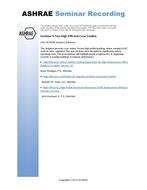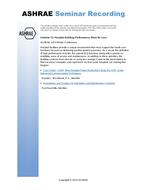An experimental investigation of frost growth on a flat, cold surface supplied by subfreezing, turbulent, humid, parallel flow of air is presented. The operating conditions are typical of many commercial freezers. A test loop was constructed to perform the tests, and the frost height, frost mass concentration, and cold surface heat flux were measured using specially designed and calibrated instrumentation. Twenty tests were done for steady operating conditions, each starting with no initial frost accumulation, and were run for two to six hours giving 480 data samples. Measured results show that the frost characteristics differ significantly with frost growth data taken previously for room temperature airflow. Depending on the temperature of the cold plate and the relative humidity of the subfreezing supply air, the frost could appear to be either smooth or rough. Smooth frost, which occurred at warmer plate temperatures and lower supply air relative humidities, gave rise to frost growth that was much thinner and denser than that for the rough, thick, low-density frost. Frost growth characteristics are correlated as a function of five independent variables (time, distance from the leading edge, cold plate temperature ratio, humidity ratio, and Reynolds number). These correlations are presented separately for the full data set, the rough frost data, and the smooth frost data.
Units: Dual
Citation: ASHRAE Transactions, vol. 105, pt. 2
Product Details
- Published:
- 1999
- Number of Pages:
- 19
- File Size:
- 1 file , 650 KB
- Product Code(s):
- D-7413


